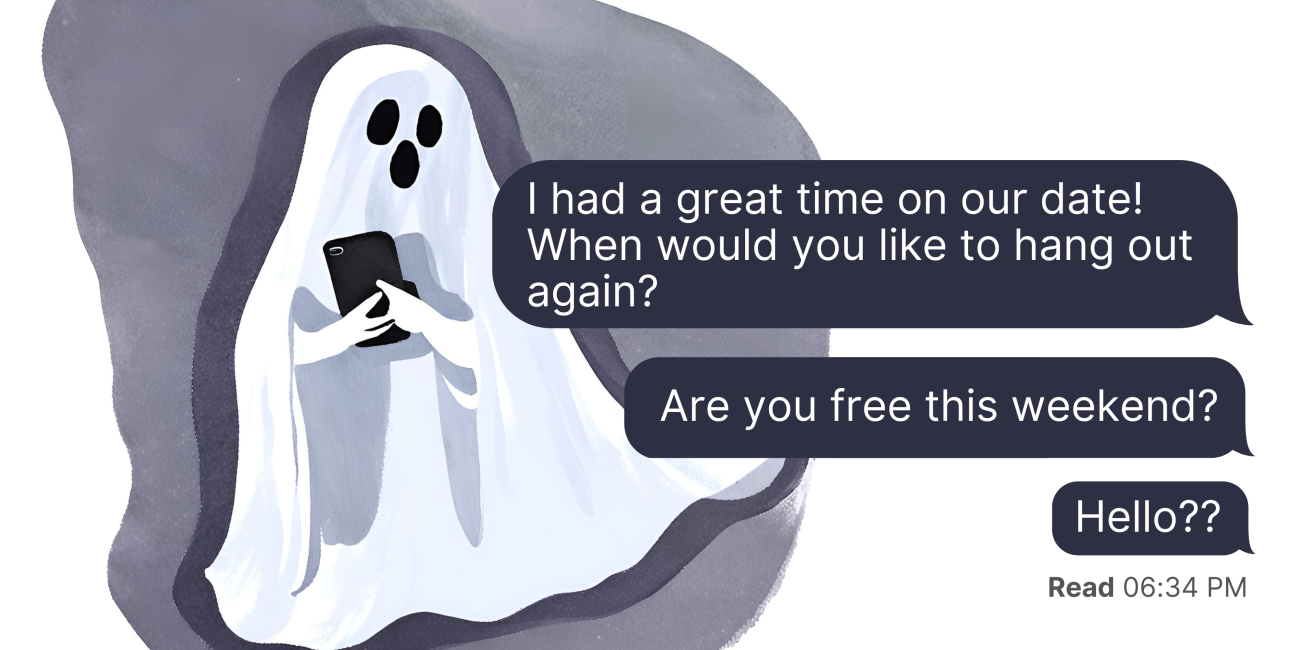
If you've ever had a great conversation going with someone and then suddenly not heard back from them ever again, then you've probably experienced 'ghosting'. The rise of ghosting culture among young people is a concerning phenomenon that I think highlights the decline of effective communication skills. With the rise and improvement of technology and social media, it's become increasingly easy to avoid confrontations and difficult conversations. People can simply 'ghost' others, disappearing without explanation or warning or even regard for the other party's feelings.
Social media platforms, especially, have contributed to this culture by providing a false sense of security and control. Behind the anonymity of a screen, individuals feel empowered to ignore or block others without consequence. I believe this behavior not only erodes tolerance but also undermines empathy and understanding. It also destroys the concept of accountability. You could easily do someone wrong and ‘ghost’ because it's easier than dealing with the messiness that sometimes comes with healthy dialogue.
Ghosting has become so normalized, making it seem uncomfortable or impractical to express one's feelings or concerns. This lack of communication can lead to misunderstandings, hurt feelings, and damaged relationships. It's essential to recognize the harm caused by ghosting and promote healthy communication habits, encouraging individuals to engage in open and respectful dialogue.
By doing so, we can work towards rebuilding a culture of empathy, tolerance, and understanding, where individuals feel comfortable expressing themselves without fear of judgment or rejection. It's time to reclaim meaningful communication and reject the toxic norms perpetuated by ghosting culture.
Some ways I feel we could do this are:
Building communities outside our screens:
Before the popularization of social media, communities and social clubs were the norm to help young people form healthy bonds that translated out of the screen and into real life. These real-life interactions naturally cultivated empathy and genuine interest in others' lives. If we can adopt or encourage this lifestyle among young people, we might be able to start building more effective communication skills. Here are some examples of ways these connections could be fostered:
- Join local groups: Participate in book clubs, sports teams, or hobby-based meetups to interact with like-minded individuals face-to-face.
- Volunteer regularly: Engaging in volunteer work not only benefits the community but also provides opportunities to connect with others.
- Attend community events: Festivals, workshops, and local gatherings can help you meet new people and feel more connected.
- Create or join study groups: For students, this can be an excellent way to combine academic growth with social interaction.
Working on our own communication skills:
Developing strong communication skills is paramount in combating the ghosting culture. Even if you're part of supportive communities, without these crucial skills, keeping healthy communication can be hard. Here are some strategies to enhance your communication:
- Embrace difficult conversations: Rather than resorting to ghosting, commit to facing uncomfortable discussions head-on. This builds emotional resilience and fosters more meaningful relationships.
- Educate yourself: Invest time in reading books on effective communication and conflict resolution. Implement the strategies you learn, turning them into habits through consistent practice.
- Seek professional help: If you can afford it, consider therapy. A professional can help you uncover and address underlying reasons for conflict avoidance, and help you to improve your communication skills.
- Reflect on your patterns: Regularly assess your communication style. Are you prone to ghosting? Do you struggle with expressing your feelings? Identifying these patterns is the first step to changing them.
- Learn to express emotions healthily: Develop vocabulary to articulate your feelings clearly and respectfully. This can prevent the urge to ghost when emotions become overwhelming.
By implementing these strategies, we can encourage open and respectful dialogue, rejecting the toxic norms of ghosting culture and promoting meaningful communication. It's time to denormalise ghosting!
Support Young Creators Like This One!
VoiceBox is a platform built to help young creators thrive. We believe that sharing thoughtful, high-quality content deserves pay even if your audience isn’t 100,000 strong.
But here's the thing: while you enjoy free content, our young contributors from all over the world are fairly compensated for their work. To keep this up, we need your help.
Will you join our community of supporters?
Your donation, no matter the size, makes a real difference. It allows us to:
- Compensate young creators for their work
- Maintain a safe, ad-free environment
- Continue providing high-quality, free content, including research reports and insights into youth issues
- Highlight youth voices and unique perspectives from cultures around the world
Your generosity fuels our mission! By supporting VoiceBox, you are directly supporting young people and showing that you value what they have to say.





